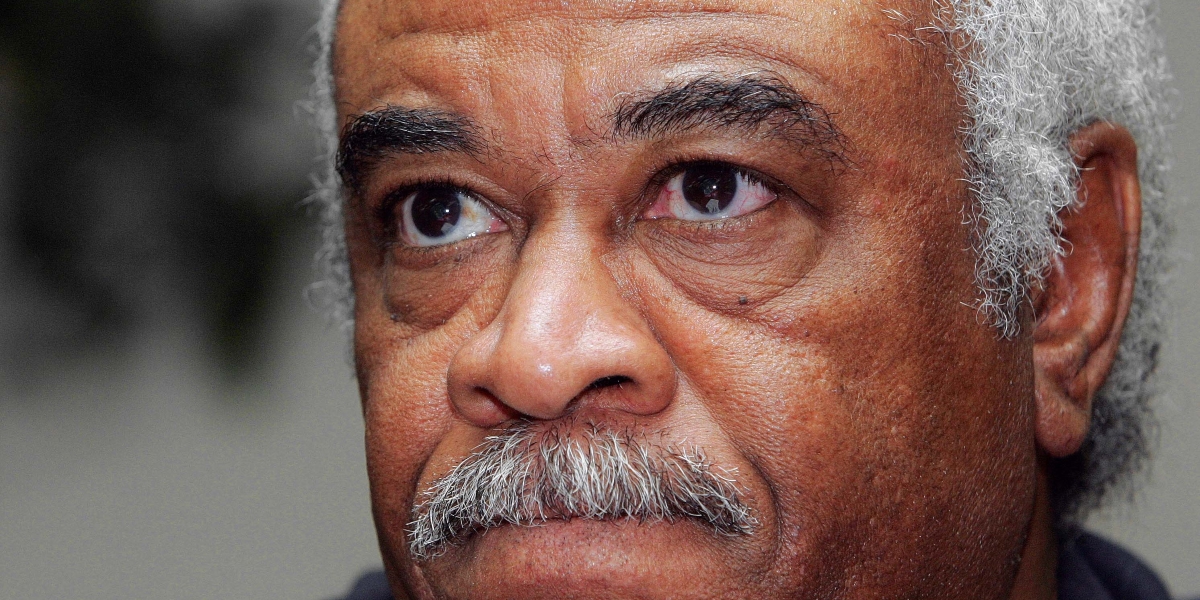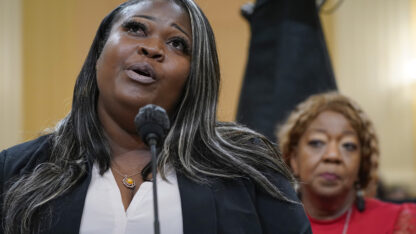The sentencing hearing for former state Rep. Tyrone Brooks got underway Monday in federal court in Atlanta.
In April, Brooks pleaded guilty to filing false tax documents and no contest to fraud.
Federal prosecutors asked U.S. District Judge Amy Totenberg for a two-year prison sentence for Brooks, an Atlanta Democrat, because they said he hasn’t accepted responsibility for his actions.
Words As Evidence
They played this WABE news report in court as evidence. It included an audio clip from Brooks denying his guilt to WABE’s Denis O’Hayer in 2013:
Brooks: Understand who’s making the allegations scurrilously.
O’Hayer: Are you saying these are lies?
Brooks: Absolutely, they’re lies.
Brooks’ attorney, Thomas Hawker, argued for probation.
He countered that the media reports were out of context and said in opening arguments they would prove this is not a common case of fraud but rather that Brooks just wasn’t “meticulous” and “kept no financial records.”
“Probation is expressly authorized. This is not a plea for letting him off the hook,” said Hawker in opening arguments. “He is absolutely tireless in his work. There is no off button for Mr. Brooks, a civil rights foot soldier and advocate.”
Testimony About Funds
FBI special agent Christy Parker has been investigating the public corruption case for the last four years.
She testified Brooks embezzled thousands of dollars in donations from two nonprofit groups he led, Universal Humanities and Georgia Association of Black Elected Officials, and put the money in his personal bank account.
Northside Hospital, Georgia-Pacific and Coca-Cola were among some of the big donors.
“[Brooks] used his access and trust and his record as a civil rights leader to get tens of thousands of dollars,” said federal prosecutor Kurt Erskine. “It never gave him the right to steal.”
Letters, Documents Displayed
In court exhibits, Erskine displayed solicitation letters and financial documents that sometimes listed deceased people as members of his board of directors for Universal Humanities, which he founded in 1991.
Parker said when she interviewed the board of directors, many said they did not know they were named board members of Brooks’ nonprofit.
Hawker said the defense would try to show this week that Brooks didn’t make a distinction between the work he was doing for the nonprofits and his personal social justice work.
He added that it is an “unusual fraud case,” since money was not spent on luxury goods. They were spent mostly on things like life insurance, credit card bills, a Match.com account, laundry services and utility bills.
Sentencing is expected to wrap up Friday.

9(MDAxODM0MDY4MDEyMTY4NDA3MzI3YjkzMw004))









